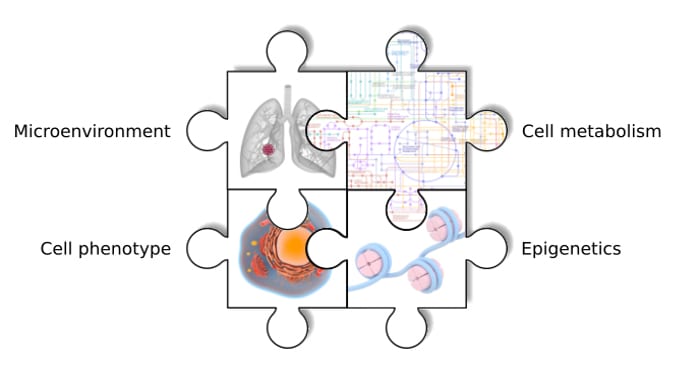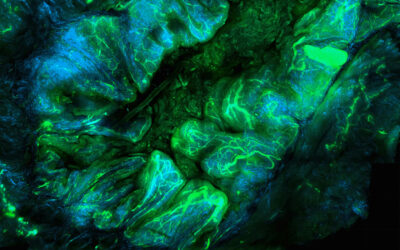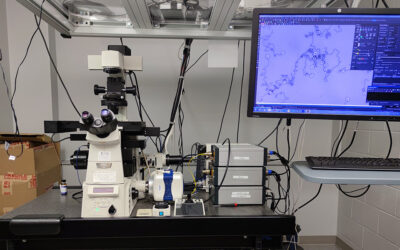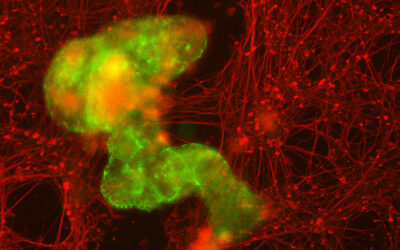Cancer is a disease of complex causes and characteristics that converge in uncontrolled survival, proliferation, and spreading of cancer cells. The underlying basis of cancer is the deregulation of multiple cellular process including metabolism. Metabolism is an essential biochemical reaction network that enables cells to generate energy and biomass. However, beyond this, metabolism controls and connects many of the cellular processes deregulated in cancer. Thus, metabolism works as a hub, and the aberrant activity enables and supports cancer initiation and progression. Therefore, the mechanistic understanding of these complex metabolic interactions in cancer is essential for the development of innovative and effective therapies against this deadly disease.
In a recent review article in WIREs Systems Biology and Medicine, Rinaldi and colleagues provide an overview of the latest advancements in the understanding of complex metabolic interactions in cancer. The review discusses novel interconnections emerging at the interphase between metabolism and other cellular processes deregulated during tumorigenesis. A particular focus is the metabolic control of the epigenetic landscape and the metabolic adaptations in response to cell extrinsic as well as intrinsic factors such as the microenvironment and the cellular phenotype. Our current knowledge on the complex metabolic interactions in cancer are based on integrative data analysis approaches combining computational and experimental cancer research, which are highlighted by the authors throughout the review. Taken together, this advanced review provides an overview on the connectivity between metabolism and other cellular processes in cancer.
Kindly contributed by the Authors.

















